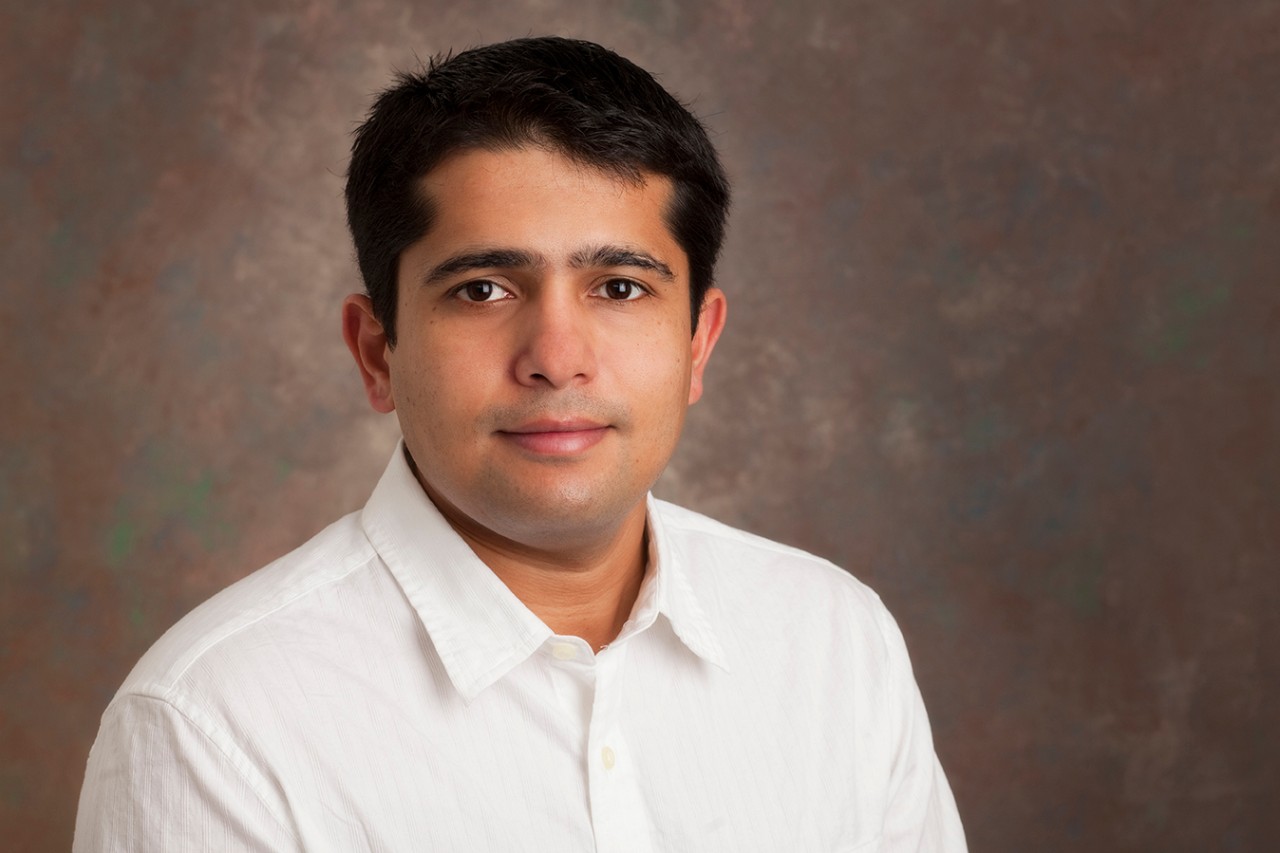


Inferring interactions
June 07, 2017
Nature paper highlights how random variations and reprogramming lead to cancer drug resistance
Biological materials, structures and processes may appear random, but they actually have underlying patterns that can be elucidated with the use of high-performance computing.
At the University of Delaware, assistant professor Abhi Singh is developing a variety of novel computational and mathematical methods for studying and characterizing complex networks of genes and proteins inside cells.
He and his graduate student, Cesar Vargas-Garcia, recently collaborated with a team at the University of Pennsylvania on research to better understand drug resistance in cancer cells.
Led by professor Arjun Raj and graduate student Sydney Shaffer in Penn’s Department of Bioengineering, the work is highlighted in a paper, “Rare Cell Variability and Drug-Induced Reprogramming as a Mode of Cancer Drug Resistance,” published in the June 15 issue of Nature.
To understand resistance at the single cell level, the group at Penn used cultured patient-derived melanoma cells.
Singh explains that even before treatment, random cancer cells have a high degree of resistance to the drugs used to treat the disease, as evidenced by the over-expression of certain genetic markers.
These cells not only survive chemotherapy but actually reprogram themselves and begin to propagate in the new environment. At that point, drug resistance is more or less permanent.
That’s where Singh and Vargas-Garcia enter the picture. The algorithms they develop allow them to make inferences about the architecture of the genetic network that underlies resistance.
“Measurements of 19 resistance marker genes in single cells show high cell-to-cell variations, and we study the structure in their co-variation before and after drugs are added,” he says. “We might find, for example, that a high expression of Gene A coincides with high expression in Gene B but not in Gene D.”
The fluctuations provide information about the underlying genetic circuits, and the researchers have discovered that the reprogramming which occurs after drug treatment basically results in rewiring of these circuits.
“We’ve found that previously normal cells can become resistant during this process and that if we hit the cells too hard, the reprogramming can happen even more rapidly,” Singh says.
“Through our collaboration with Arjun’s lab at Penn, we’re hoping to learn more about what actually happens during reprogramming and the timing of the process,” he adds. “This knowledge could lead to better treatment strategies, where, for example, the timing of chemotherapy can be fine-tuned to avoid the further development of resistance.”
About the research
The paper was co-authored by Sydney Shaffer, Margaret Dunagin, Stefan Torborg, Eduardo Torre, Benjamin Emert, Clemens Krepler, Marilda Beqiri, Katrin Sproesser, Patricia Brafford, Min Xiao, Elliott Eggan, Ioannis Anastopoulos, Cesar Vargas-Garcia, Abhyudai Singh, Katherine Nathanson, Meenhard Herlyn, and Arjun Raj.
All of the researchers except Singh and Vargas-Garcia are affiliated with the University of Pennsylvania and/or the The Wistar Institute in Philadelphia.
Singh has joint appointments in UD’s Department of Electrical and Computer Engineering, Department of Biomedical Engineering, and Department of Mathematical Sciences.
Vargas-Garcia is a doctoral student in the Department of Electrical and Computer Engineering, whose research focuses on building stochastic models to explain the statistical properties of cell volume and cell cycle timing observed in nature.
The University of Delaware’s contribution to this research was supported through the National Science Foundation via a grant from the Mathematical Biology Program.
Contact Us
Have a UDaily story idea?
Contact us at ocm@udel.edu
Members of the press
Contact us at 302-831-NEWS or visit the Media Relations website

